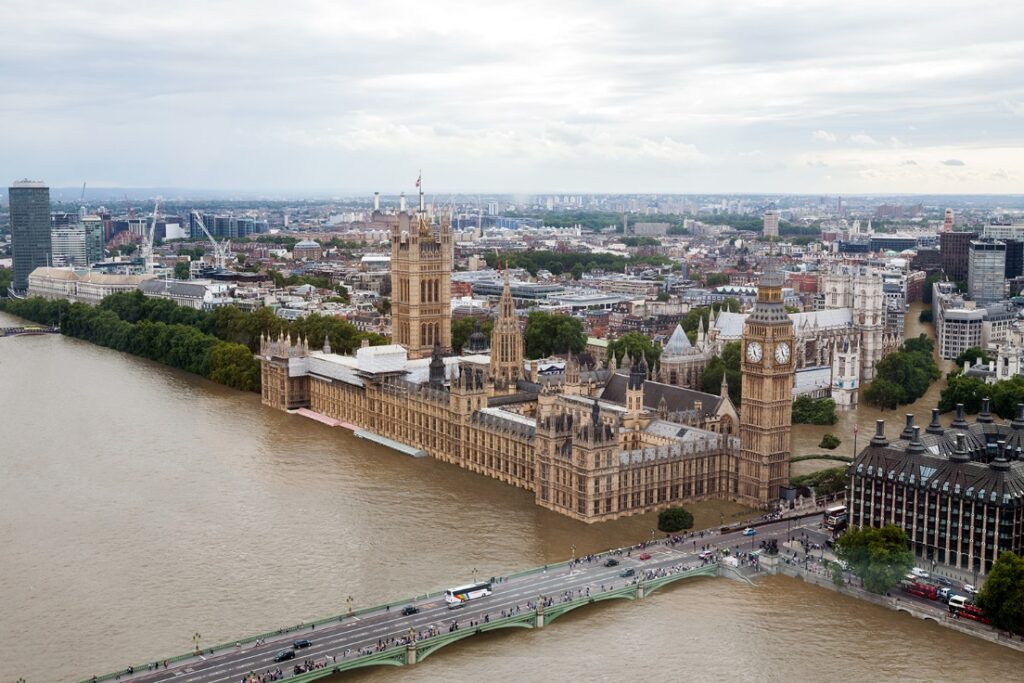Global assurance and risk management provider DNV has released a report suggesting that the UK government should prioritise long-term policy clarity and consistency for the energy transition.
In DNV’s 2024 UK Energy Transition Outlook (ETO) report, the firm said progress to net zero seems to be stalling, citing disappointing results of the latest wind allocation round, uncertainty around decarbonising home heating, and hydrogen’s role in the UK as areas of concern.
The ETO goes on to highlight the issues surrounding hydrogen production, saying it will reach 1 megatonne per year, which is equivalent to roughly 5GW of low-carbon hydrogen, as opposed to the government’s target of 10GW.
The report outlined the fact that the UK remains heavily reliant on fossil fuels for at least the next decade and beyond, with the UK currently on track to reduce the role of fossil fuels in its energy mix to 70% by 2031.
According to DNV, almost 80% of all UK primary energy currently comes from fossil fuels, of which just over 50% is produced nationally, with renewables (13%) and nuclear energy (7%) making up the remaining 20%.
In order to expand fossil fuel use reduction, the report suggests the UK government adopt a ‘whole systems’ thinking approach and act across all its elements to “counter system inertia”.
The government should provide clear incentives for policymakers to crowd in private capital for the buildout of green generation and facilitate planning and permitting for the delivery of critical infrastructure, says DNV.
In terms of the transition’s funding, DNV argues it is affordable even with annual energy infrastructure CAPEX expected to increase from a yearly average of £26-38 billion per year over the next 30 years.
This cost could be partially offset by the target of an almost 40% reduction in household energy bills by mid-century as the share of renewables increases compared to 2021 prices.
Hari Vamadevan, executive vice president and regional director, UK & Ireland, energy systems at DNV, said: “The evidence in our 2024 UK ETO is clear – without immediate action, the UK will fail to deliver on its climate commitments, fall behind in the global race to decarbonise and miss out on many of the benefits that switching to a low-carbon system will bring.
“But, by putting the correct policy levers in place, there is still time for industry and government to deliver a transition that is good for business, good for consumers and good for the planet.”
Government actions
This is not the first time a group has accused the UK government of not moving quickly enough on the energy transition, nor is it the first time DNV has voiced its concerns.
In December 2022, DNV released a new report which indicated the UK was set to miss its 2050 net zero target and called on industry and government to mobilise a clear roadmap to attain the mid-century goal.
In this report, the firm highlighted that household energy expenditure was expected to be reduced by 50%, which has been lowered to 40%. At this point, DNV was primarily concerned with the transportation and building sectors, which were set to be the highest emitters by 2050.
More recently, two DNV executives wrote an article for our sister site, Energy-Storage.news, in which they commented on the government’s long-duration energy storage (LDES) consultation, which has just launched.
The authors – Thibault Delouvrié, energy storage principal consultant, and Stephen Guthrie, head of storage and grids in the UK and Ireland – identified the significance of this consultation and highlighted the opportunities it could bring to the pumped hydro storage sector.
This consultation scheme, launched in January 2024, includes investigating the potential of a cap-and-floor mechanism as well as 20GW of LDES deployments between 2030 and 2050, which could result in system savings of £24 billion.





